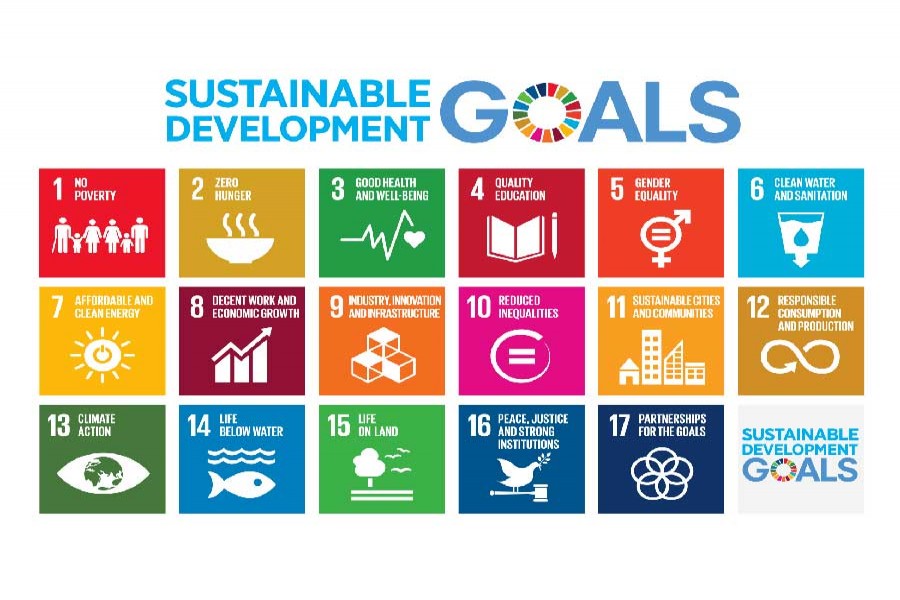Bangladesh observed national library day on Wednesday (February 05). As the library remains unrestricted for all to provide any relevant services, including reading, access to information and research, it is termed a 'University for Public'. Library is basically a living apparatus which preserves all the information of the past for the use of the present generation and that creates link between the past and present generation for the utilisation of information for its future generation.
The United Nations (UN) held a meeting in New York at the end of September 2019 for adoption of the 2030 Agenda with a total of 169 targets spanning economic, environmental and social development. The global body outlined a plan for all countries to actively work for making the world better for peoples, without anyone left behind.
Libraries are essential platforms for achieving such objectives. Over the last few years, International Federation of Library Associations and Institutions (IFLA) has been actively involved in formulation of the UN 2030 Agenda, promoting inclusion of access to information, safeguarding of cultural heritage, disaster risk reduction through climate literacy, universal literacy and access to ICT (information and communications) in the system. IFLA is the leading international body representing the interests of people who rely on libraries and information professionals.
Access to information was recognised as a priority in SDG 16 (target 16.10): ensuring public access to information and safeguarding fundamental freedoms in compliance with national legislation and international agreements.
Culture (target 11.4), climate literacy (SDG-13) and ICT (targets 5b, 9c, 17.8) have also been included in the SDGs. And, universal literacy is recognised in the vision for the UN 2030 Agenda.
Libraries all over the world are reliable organisations with access to information that is necessary to drive economic opportunity and community development. In many places, a library is the only place where people have access to information that will help better education, develop new skills, find jobs, build businesses, make informed farming and health decisions, or gain insights into environmental issues.
The UN SDGs are now common goals and each country will be responsible for developing and implementing national policies to achieve them, and it is expected that it will track and report its own progress towards each goal.
HOW TO GET INVOLVED: In Bangladesh, libraries now need to demonstrate that they can accelerate change across the whole range of 2030 Agenda. Everyone within and beyond the library community can help foster the role of libraries as development supporters.
IFLA suggests that it is now vital to negotiate with government decision-makers to ensure awareness of the role of libraries as development engines, and to ensure that libraries obtain the funding needed to continue this work. Increasing visibility inside and beyond the library community by arranging events, use of the social media, websites for updating library technology and services, forums, and mailing the users are useful to demonstrate contribution of libraries to helping the country's growth.
Library associations and members should be involved in advocacy work at national and regional levels to ensure reliable public access to information through library services and programmes.
SDG FRAMEWORK: Very recently, as part of the UN 2030 Sustainable Development Agenda, some 20 library members, along with other guests, gathered at the Australian Library Association (ALIA) House in Canberra to discuss goals for Australian libraries. They developed 17 SDG goals and 169 SDG targets and are divided into three sections: Priorities for Australian library services, contribution to society and Global citizenship through the prism of the people who attended the roundtable. In every section there are multiple subsections which reflect targets, explanation, role of actors to achieve the targets, indicators, measures taken by leading institutions and timeframe to achieve the goals.
Australian copyright legislation supports open access; equitable access; culture and heritage; literacy and lifelong learning.
It is unfortunate that the library associations in Bangladesh are not yet members of IFLA. It's time to be actively engaged with libraries and library associations internationally.
Dr Md. Nasiruddin Mitul is a Professor in Library and Information Science at National University, Bangladesh
mitulnasiruddin@gmail.com
Prodip Roy is Editor at The Librarian Times.


